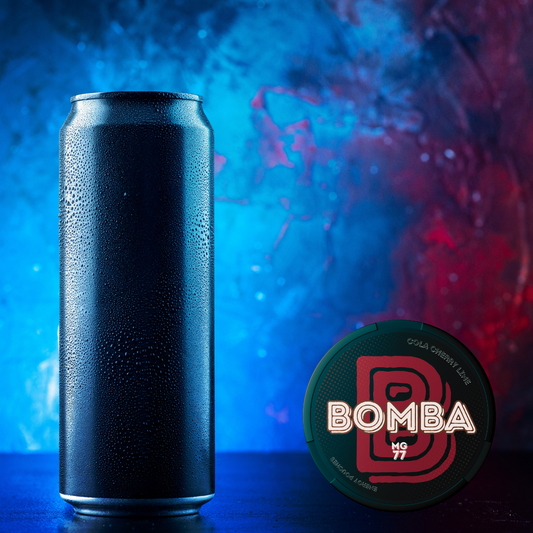When most people think about boosting their energy or sharpening their focus, caffeine is usually the first thing that comes to mind. Coffee, tea, and energy drinks have become staples for students, professionals, and athletes alike. But in recent years, a new contender has been gaining attention: nootropics. Marketed as “smart drugs” or “cognitive enhancers,” nootropics promise mental clarity, better memory, and sustained energy without the jitters of caffeine.
So how do nootropics compare to caffeine? Can one replace the other, or do they actually complement each other? Let’s dive into the science, the benefits, the drawbacks, and the future of both.
What Are Nootropics?
The term nootropic was first coined in the 1970s by Dr. Corneliu Giurgea, who described them as substances that improve cognitive function without significant side effects. Today, nootropics cover a wide range of compounds, from natural substances like L-theanine, ginseng, ginkgo biloba, and Rhodiola rosea, to synthetic ones like modafinil or racetams.
Nootropics are designed to:
-
Enhance memory and learning
-
Improve focus and attention
-
Support brain health and neuroprotection
-
Reduce stress and fatigue
Unlike caffeine, which primarily acts as a stimulant, many nootropics work by optimizing neurotransmitters (like dopamine, acetylcholine, and serotonin), improving blood flow to the brain, or reducing oxidative stress.
What Is Caffeine?
Caffeine is the world’s most consumed psychoactive substance. Found naturally in coffee beans, tea leaves, cocoa, and guarana, caffeine works as a central nervous system stimulant.
Its main mechanism of action is blocking adenosine receptors in the brain. Adenosine is a neurotransmitter that makes you feel sleepy; by blocking it, caffeine tricks your brain into staying awake and alert. This results in:
-
Increased energy and alertness
-
Improved reaction time
-
Enhanced physical performance
-
Elevated mood
However, caffeine is a short-term booster. Its effects typically last 3-5 hours, and once it wears off, many people experience a crash marked by fatigue, irritability, or brain fog.
Benefits of Nootropics vs Caffeine
Benefits of Nootropics
-
Smoother energy: Instead of a spike-and-crash, nootropics often provide steady focus.
-
Neuroprotection: Some nootropics protect brain cells from oxidative damage and support long-term brain health.
-
Stress reduction: Adaptogenic nootropics (like ashwagandha or Rhodiola) help balance cortisol levels.
-
Memory enhancement: Certain compounds (like Bacopa monnieri) have been shown to improve memory recall.
-
Personalization: There are different nootropics for focus, creativity, mood, or relaxation.
Benefits of Caffeine
-
Fast-acting: Effects can be felt within 15-30 minutes.
-
Proven performance booster: Athletes often use caffeine to improve stamina and reaction times.
-
Easily accessible: Found in coffee, tea, chocolate, and countless beverages.
-
Mood enhancer: Stimulates dopamine release, giving a sense of motivation and happiness.
Drawbacks of Nootropics vs Caffeine
Drawbacks of Nootropics
-
Research variability: Not all nootropics are backed by the same level of scientific evidence.
-
Slow onset: Some take weeks of consistent use before showing results.
-
Quality issues: Supplements aren’t always regulated, so purity can vary.
-
Cost: High-quality nootropics are often more expensive than coffee or tea.
Drawbacks of Caffeine
-
Jitters and anxiety: High doses can overstimulate the nervous system.
-
Crash: The sudden drop in energy after the caffeine wears off.
-
Sleep disruption: Even moderate caffeine intake late in the day can interfere with sleep.
-
Tolerance and dependence: Over time, the body adapts, requiring higher doses to achieve the same effect.
How Do They Work Together?
Interestingly, many people are now combining caffeine with nootropics to get the best of both worlds. A popular example is caffeine + L-theanine.
-
Caffeine gives a quick boost of alertness.
-
L-theanine, an amino acid found in green tea, promotes relaxation without drowsiness.
Together, they create a state of “calm focus,” reducing jitters while extending mental clarity. This kind of synergy has inspired the creation of many modern energy supplements — including pouch-based products like Bomba, which blend caffeine and nootropics for balanced performance.
Which One Should You Choose?
When to Choose Caffeine
-
You need instant energy (e.g., before a workout, early morning, during exams).
-
You enjoy the ritual of coffee or tea.
-
You’re looking for a short-term mental or physical boost.
When to Choose Nootropics
-
You want sustained focus without a crash.
-
You’re prone to caffeine jitters or anxiety.
-
You’re interested in long-term brain health and neuroprotection.
-
You want a solution tailored to specific needs (memory, creativity, stress).
The Future of Cognitive Enhancement
Caffeine has been around for centuries and isn’t going anywhere. But nootropics represent the future of energy and brain optimization. Instead of relying on a stimulant alone, people are moving toward personalized stacks of compounds that enhance focus, mood, and performance while minimizing side effects.
This is where modern alternatives like Bomba come in: portable, discreet, and scientifically designed blends of caffeine and nootropics that give the benefits of both worlds without the downsides.
At the end of the day, it’s not a question of nootropics vs caffeine, but rather how each fits into your lifestyle.
-
If you’re looking for a quick jolt, caffeine is unbeatable.
-
If you want smoother focus and long-term brain benefits, nootropics shine.
-
And if you want the best of both, combining them — smartly — could be the answer.
The key is balance. With the right approach, you can enjoy the mental edge of caffeine, the neuroprotective benefits of nootropics, and the next generation of performance products designed to help you think sharper, work smarter, and live better.


